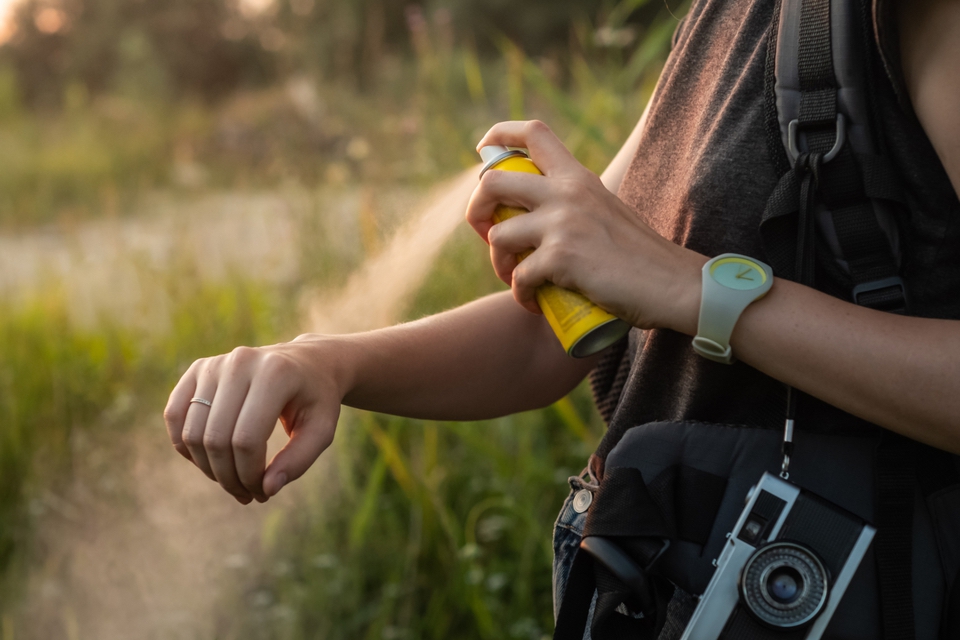Every year when the weather warms up, we armor up with insect repellent. It’s a necessity on the trail, partly to keep insects from bugging us and partly to prevent the spread of disease (like malaria). And when it comes to repelling annoying bugs, DEET is the reigning queen bee.

DEET has been the leader of insect repellents for decades. According to the EPA, about a third of Americans annually turn to DEET to fend off bloodthirsty mosquitoes. DEET has been proven to be highly effective and is found in over 100 products.
But is this stuff all it’s cracked up to be?
There’s been another insect repellent catching all the buzz in recent years, and that repellent is picaridin. Like DEET, picaridin is highly effective in warding off insects. Lather it on and you’ll find yourself pleasantly bug-free for hours. Odorless and non-greasy, picaridin has become a favored alternative to the industry’s gold standard DEET.
The question is, which one should you be using?
Before you go reaching for another aerosol can of OFF!, or choosing to roll the dice on picaridin, there are some things you need to consider. We’ll break down these two common insect repellents so you can make an informed decision about which one is a better insect repellent for you and your health.
DEET (N, N-diethyl-meta-toluamide) is a synthetic and active ingredient used as an insect repellent. It was originally developed in the 1940s by the US Army as a means of protecting soldiers when entering insect-infested areas. Since DEET’s release to the public in the 1950s, it has become the most widely used insect repellent.
DEET is primarily used for warding off mosquitos and ticks. Depending on the concentration level, its effects can last anywhere from 2-12 hours. Although colorless, DEET does have a recognizable odor that’s detested by bugs (and many people). Despite being effective, it can cause damage to plastics and some synthetic materials.
DEET has been studied more than any other insect repellent on the market. It’s highly effective against warding off mosquitos and ticks, which is a major plus in the prevention of malaria and Lyme disease. It can last half a day in higher concentrations, so you won’t have to worry about reapplying.
The Women's Outdoor News, aka The WON, features news, reviews and stories about women who are shooting, hunting, fishing and actively engaging in outdoor adventure. This publication is for women, by women. View all posts by The WON